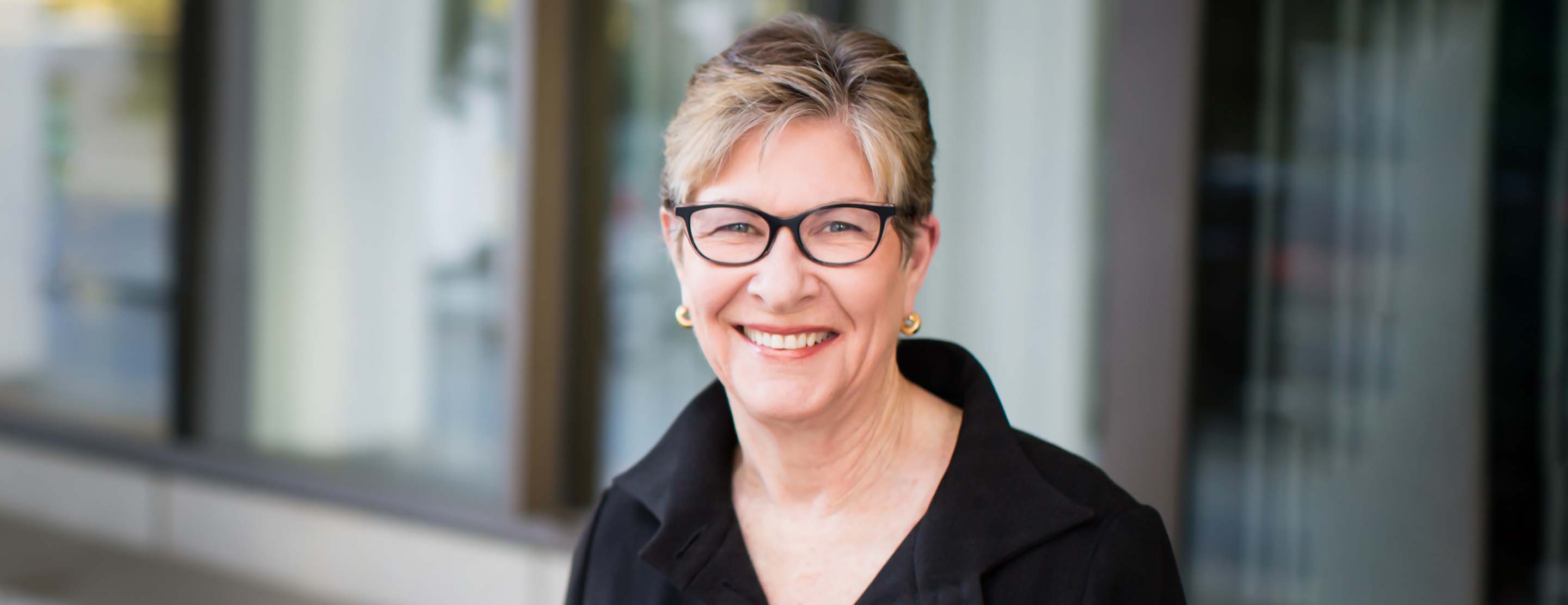Dr. Margaret Tempero is director of the UCSF Pancreas Center and leader of the Pancreas Cancer Program at the UCSF Helen Diller Family Comprehensive Cancer Center. She has dedicated her career to serving as a champion for patients with pancreatic cancer.

Doctor Q&A: Margaret Tempero
Why did you choose UCSF?
I wanted to be in a world-class medical center with a culture of innovation, scientific discovery, collaboration and outstanding clinical care.
UCSF has a tremendous sense of interdisciplinary collaboration. That's where you bring everybody's talents together to focus on a problem. Pancreatic cancer is one of the most difficult problems we face in modern medicine, so I can't think of a better place to understand this disease. And if we can understand it, we can beat it.
What gives UCSF that culture of innovation?
The scientists here aren't afraid of taking risks. That gives a very different flavor to their work. They will try new things, they will think out of the box, they won't back off from a difficult problem. In fact, sometimes the harder it is, the more they want to come to the table to try to unravel it.
How did you decide to focus on pancreatic cancer in your career?
Pancreatic cancer is the most lethal of all malignancies. It was recently classified as the most difficult of all the recalcitrant [difficult to treat] cancers that we deal with today.
When I first got into academic medicine, I looked for an area to focus on. I appreciated that patients with pancreatic cancer didn't have any real champions at that time, and thought that I could be that champion, I could pull a team together that could be champions for these patients. I've dedicated my life to patients with pancreatic cancer.
What do you tell patients when they hear scary statistics and ask about their odds?
Odds deal with groups of people. I emphasize the individual nature of their problem, and how our treatment can make a difference in prolonging their lives and improving their chances for a long-term cure.
I tell them that individuals can beat this, and we treat our patients as individuals.
How can we beat pancreatic cancer for good?
I think if we can pull everybody's strengths together from many different fields, and really understand the biology of the disease, we can end it.
What inspires you?
The scientific strength of my colleagues is always teaching me something, helping me to be better. It inspires me to come up with new paradigms that I can take back and challenge them with, so it's sort of a circular thing.
How is UCSF unique for patients?
UCSF is really patient-centered. Often we hear that patients are a little afraid when they're referred here. It's a big institution. But everyone says that once they're here, it's like they've come home. They appreciate the kind and compassionate care they get from everyone, from the person in the front office, to the nurse, to the doctor, to the valet who's parking their car.
Are your patients part of their care team?
The more patients understand the disease, and the principles of managing it, the more they can be partners in our progress. So we really do look for the patient to be part of the team.
Do they also help you in your research?
We want to learn from everything we can, so every patient we see becomes part of our research program. It could be a simple matter of donating some extra piece of biopsy tissue or a blood sample, or actually participating in a clinical trial where we're trying out a new drug. They all teach us something, and we hope that they benefit in some way by their participation.








